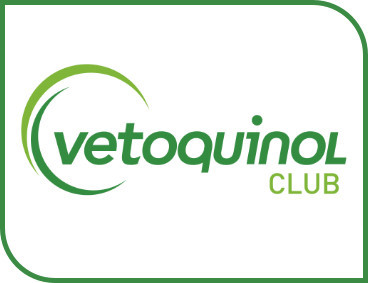Although washing with a cleaner removes a significant amount of microbes, what remains is still enough to pose a risk for infection. Disinfection is a process that destroys and reduces pathogens to a low level of contamination. Disinfection typically follows washing with a cleaner and rinsing with water.
SENSITIVITY TO DISINFECTANTS
Disinfectants act by damaging cell walls and cell membranes. Organisms vary in their sensitivity to disinfectants based on their cell wall and membrane construction. Organisms with high phospholipid (fat) and low protein cell wall/membrane content tend to be easier to kill with disinfectants than organisms with high protein and low fat cell wall/membrane contents.
Sensitivity of organisms to disinfectants
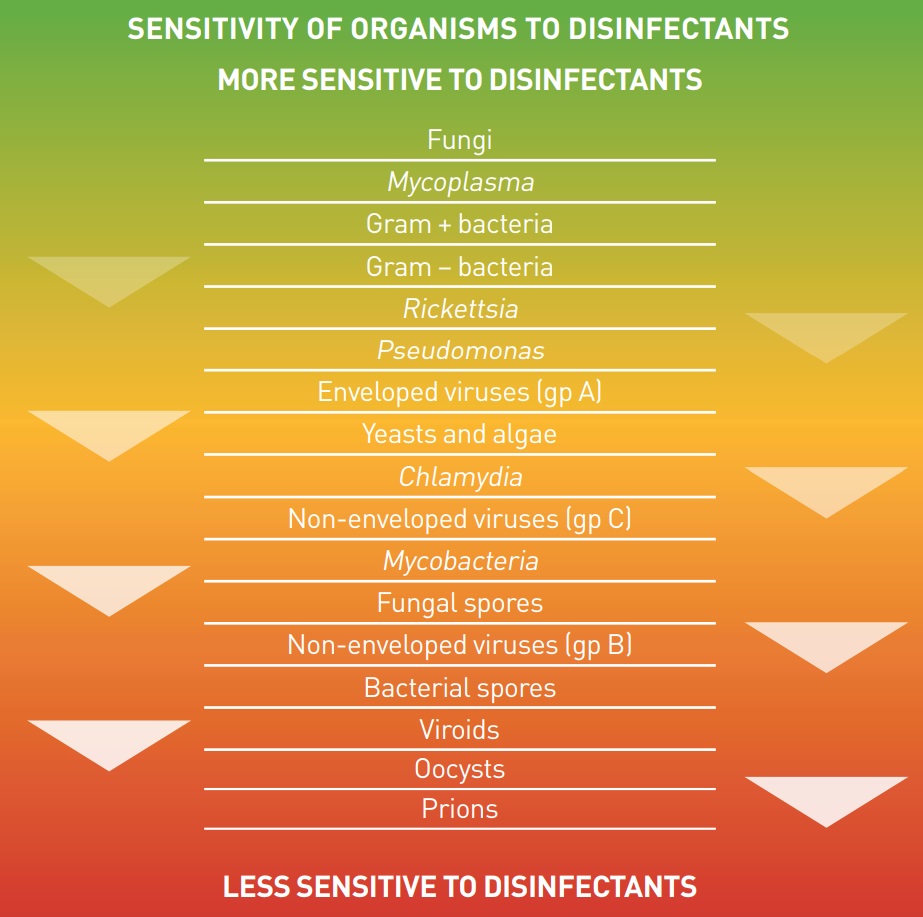
Sensitivity of small animal pathogens to disinfectants
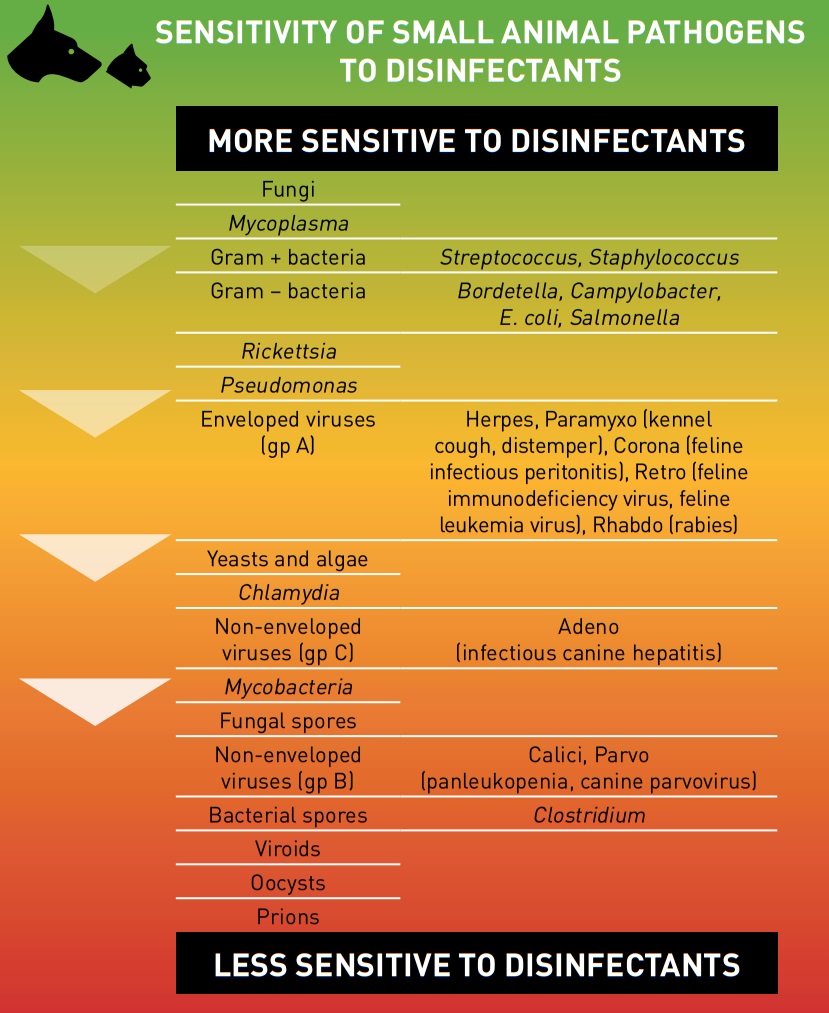
Sensitivity of equine pathogens to disinfectants
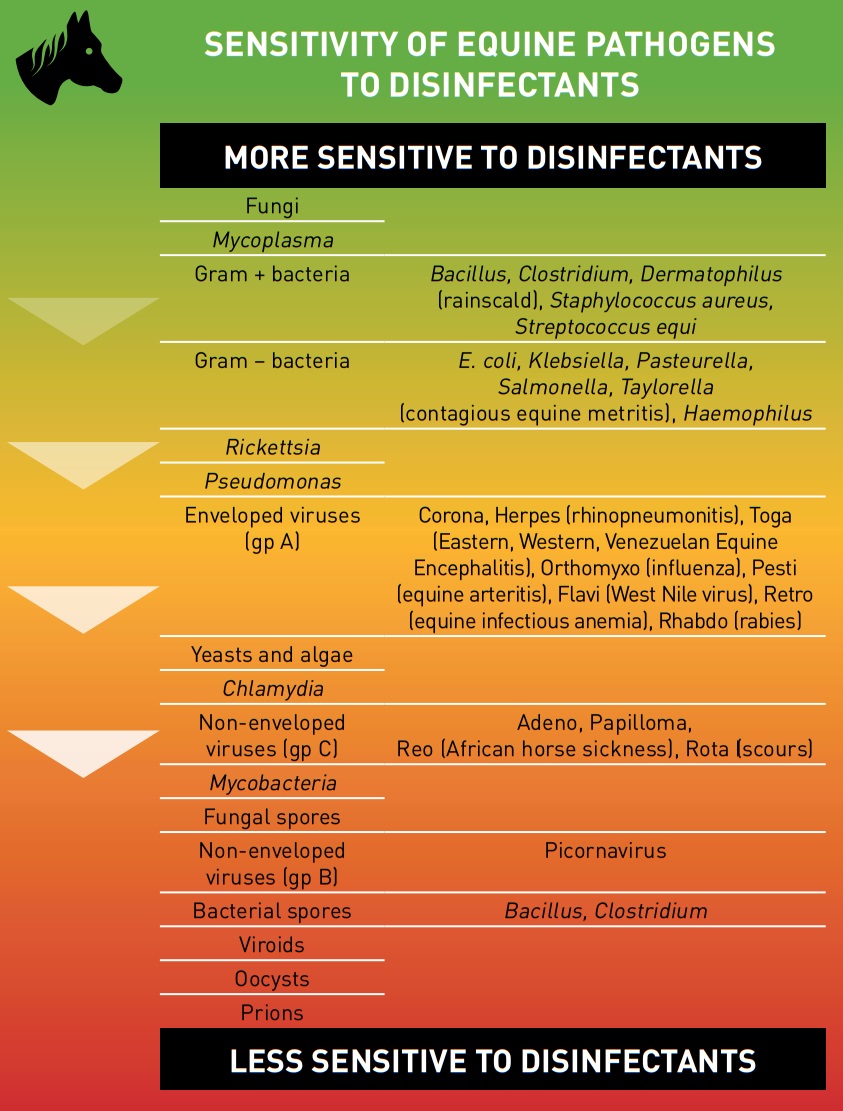
Sensitivity of bovine pathogens to disinfectants
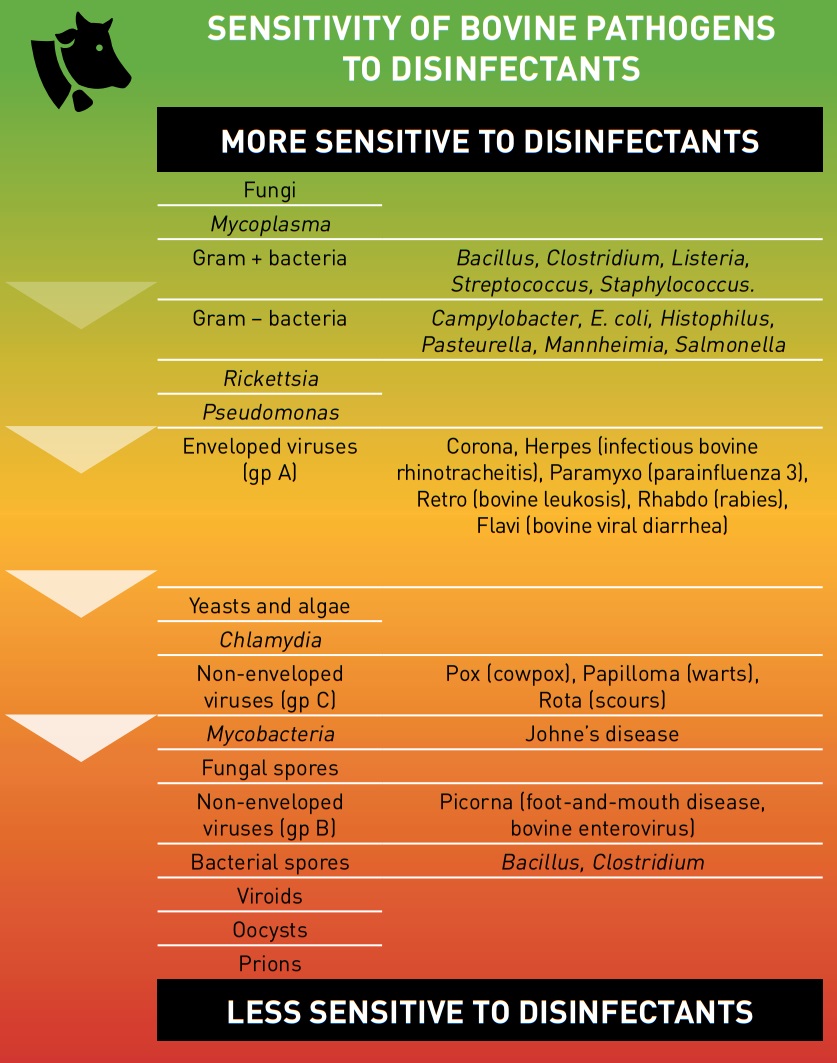
ALL DISINFECTANTS ARE NOT CREATED EQUALLY
Disinfectants vary in their ability to penetrate different types of cell walls and cell membranes.
Most products registered for hard surface disinfection have been proven to achieve "low level disinfection", meaning they are effective for destroying vegetative fungus and bacterial cells. Destruction of more resistant organisms (e.g. parvovirus, calicivirus, and spores) may require a disinfectant with proven specific efficacy.
Virkon® is registered as a low-level disinfectant, however, independent laboratory testing has shown it to perform as an intermediate or high-level disinfectant for many organisms including non-enveloped viruses and spores. Data is available upon request.
VETOQUINOL DISINFECTANTS
Next ► Cleaning and disinfection steps

TABLE OF CONTENTS
1 ► PRINCIPLES OF CLEANING
Biofilm
Mineral deposits
What is a cleaner?
Selection of an appropriate cleaner
2 ► PRINCIPLES OF DISINFECTION
Sensitivity to disinfectants
All disinfectants are not created equally
3 ► CLEANING AND DISINFECTION STEPS
Removal of organic material
Cleaner application
Disinfection
4 ► CLEANING AND DISINFECTION STEPS FOR ANIMAL HOUSING
Runs and kennels
Cages
Large animal stalls
Calf crates
5 ► RISK ZONES WITHIN THE CLINIC
Low risk
Intermediate risk
High risk
6 ► APPLICATION METHODS
Spraying versus foaming
Equipment
Dedication of equipment by risk zone
Footwear disinfection
7 ► VETOQUINOL CLEANING AND DISINFECTION PRODUCTS
Vetoquinol Cleaners
Biosolve™ Plus
Biosolve™ AFC
Vetoquinol Disinfectants
Virkon®
BioSentry® 904
Clinicide
8 ► FREQUENTLY ASKED QUESTIONS
9 ► BIOSECURITY REFERENCES
QUIZ ► TEST YOUR KNOWLEDGE
Vetocontact
Access restricted to veterinarians


